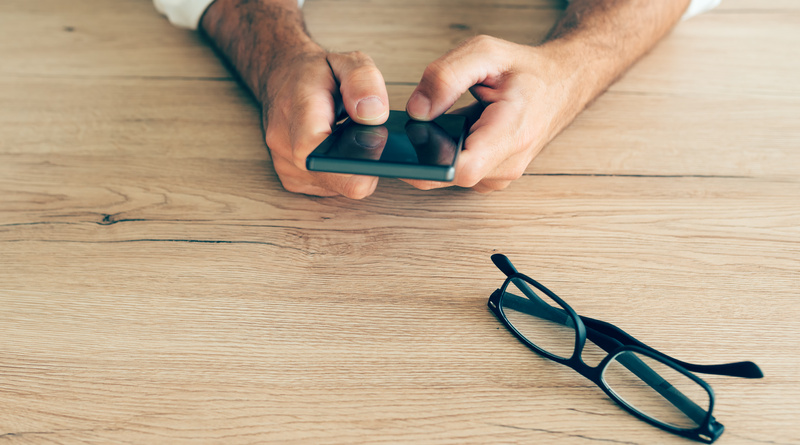On The Fence About Using Healthcare Apps and Wearables? This May Change Your Mind.

The following post was submitted by Jeremy Floyd, Director of Sales with RightPatient®
If you are still on the fence about using healthcare apps and/or wearables to better manage individual health or if it’s a brand new concept that’s peaked your curiosity but you want to know more, recent survey results may nudge you closer to adoption. Reported by mobihealth news, the survey polled 1,1015 American adults asking if they were interested in using a mobile app to manage their health. Two-thirds of survey participants responded “yes.” Two-thirds! The research report linked to the survey reported that (no surprise) millennials were more than twice as likely to show interest in using a mobile app for personalized health management compared to adults 66 and older.

Recent survey results indicate that more American adults are open and willing to the use of healthcare apps and wearables to more effectively manage personal health.
The survey went on to report that survey participants were most interested in tracking :
- Diet and nutrition (47%)
- Medication reminders (46%)
- Symptom tracking (45%)
- Physical activity tracking (44%)
The overriding point that the survey illuminates is that the era of using healthcare apps and wearables for personalized health management is upon us. No longer just shiny new tools that offer basic functionalities only used by the elite, healthcare apps and wearables are becoming vital tools that encite behaviorial shifts needed to more effectively and proactively manage our day-to-day health regimens. Couple this with the fact that mobile is the fastest-growing sector of the digital health market, and the new personal health management paradigm isn’t hard to picture.
Just a few short years ago, the birth of healthcare apps and wearables brought us clunky, rather inefficient tools that focused mostly on data reporting and wellness metrics. However, as the market evolved, the utility and connectivity of these tools matured, and more solutions were built that began to not just report data, but analyzed, shared, and extracted wisdom from it too. Apps and wearables went from “cool” to “essential” for effective health monitoring and data that produces actionable results to improve outcomes. And it seems like, it virtually happened overnight.
It could also perhaps be argued that the psychology of using of healthcare apps and wearables is as critical to the function of the tool itself. As notorious creatures of habit, our society tends to cling to tried and tested methods that have proven to be effective. Few are willing to take a leap of faith and venture into new territory that could otherwise disrupt the status quo, especially when it comes to a topic as sensitive as healthcare. Your health, is after all, your life. But what we are beginning to see as more of these healthcare apps and wearables prove their worth is a shift change in a willingness to try, backed by more physicians, healthcare providers, and peers who stand behind these tools as a necessary and essential part of patient activation in the spirit of improved patient engagement to improve outcomes. More patients are starting to look around and accept that the smartphone and digital health tools just can’t be ignored any longer and must be incorporated into their regimens throughout the patient journey. Now, it becomes a question of choosing which tools (or combination of tools) will be the most effective, based on the unique needs of each patient.
Embrace these new tools. Relish their portability. Talk to your doctor. Discuss them with your family and peers. But above all, give them a chance to make a difference.
 Jeremy Floyd is Director of Sales with RightPatient®. With over 5 years of experience in providing patient safety and patient engagement technical solutions to the healthcare industry, Jeremy speaks around the country to healthcare professionals on the future of health empowerment.
Jeremy Floyd is Director of Sales with RightPatient®. With over 5 years of experience in providing patient safety and patient engagement technical solutions to the healthcare industry, Jeremy speaks around the country to healthcare professionals on the future of health empowerment.


